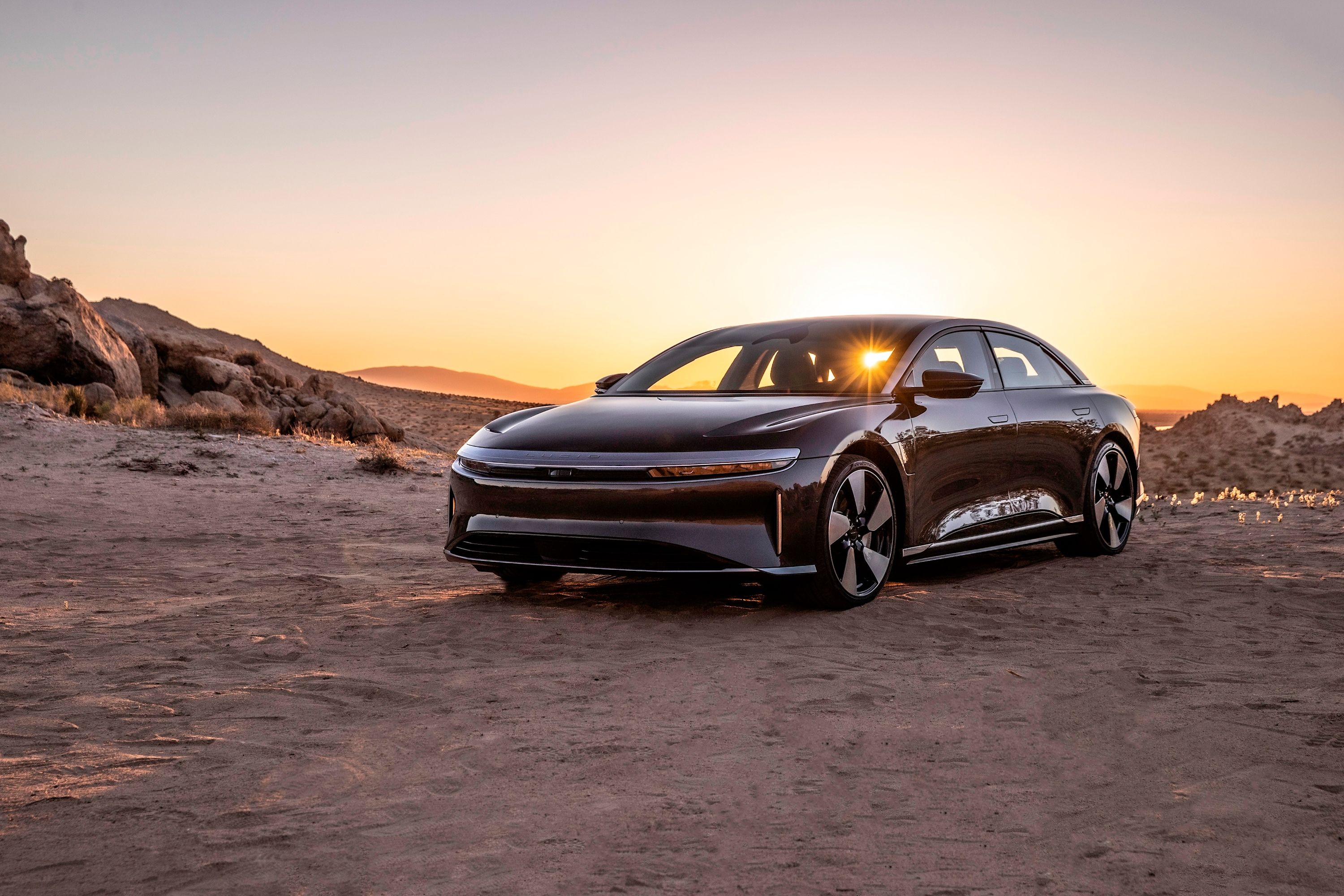
Lucid is very, very clear on what's really pulling the weight in its cars, from the current Air sedan to the upcoming Gravity SUV. "It's the software that drives the powertrain, the software that manages the batteries, all the software that controls the critical components of the vehicle," says CEO Peter Rawlinson via Business Insider during the brand's Q3 earnings call.
Its importance can't be understated according to the CEO. "Software is a key element for Lucid Air's unheralded performance and efficiency," he continues. While the brand emphasizes how critical software is to its in-car ecosystem, its customers have their gripes.
This is best evidenced by a handful of open complaints from consumers to the NHTSA. These range from software issues to wild electrical and hardware problems. One Lucid Air owner, with just 243 miles on the odometer, had their Air die under some strange circumstances: there was a lightning strike close to the car while driving during a storm.
The owner reported to the government agency that after the hit, the vehicle lost power, then rebooted. The car was parked, but couldn't be restarted after turning it off. A dealer said the battery pack had shorted out and needed to be replaced. For reference, these aren't cheap. A new one in the much cheaper and more mainstream Volt cost $30,000.
The NHTSA reports the vehicle wasn't repaired, though Lucid was made aware of the situation. Lucid also said the lightning strike wasn't related to the failure.
Lucid's strategy for addressing issues with its cars seems to be much like the adage about eating the elephant - it has to be done one bite at a time. Recently, Lucid updated all its cars with Lucid UX 2.0, which added more safety and convenience features while tackling some common bugs. The brand called UX 2.0 "the most extensive to date, with significant advancements and improvements."
Despite that, all 19 of the Lucid owners that Insider spoke with in its report said they had experienced some form of software or hardware issue.
Garrett Nelson, vice president of CFRA, an independent equity investment research firm, thinks that Lucid needs to justify its incredibly high asking price with stunning features. "They're going to have to have really impressive features to justify the price that they're asking," said Nelson to Insider.
However, "most" of the owners that spoke with the publication have largely been happy with the car, and view glitches as minor inconveniences. "Growing pains" feels like an apt descriptor.
"If the car sits in the sun for the afternoon, DreamDrive won't read speed-limit signs," an owner said. "I have displays that periodically crash. You ask Alexa to do something and two of your displays crash, and until you reset the car it stays that way."
While some simply do chalk the issues up to growing pains, it's easy to wonder how long that empathy will last. Owners are paying for six-figure luxury cars they expect to be polished. The cars are supposed to be part of an established segment now, not bleeding-edge luxury spaceships like the Model S of ten or so years ago. Whether Lucid can push past its growing pains will clearly be a deciding factor in the company's future.
